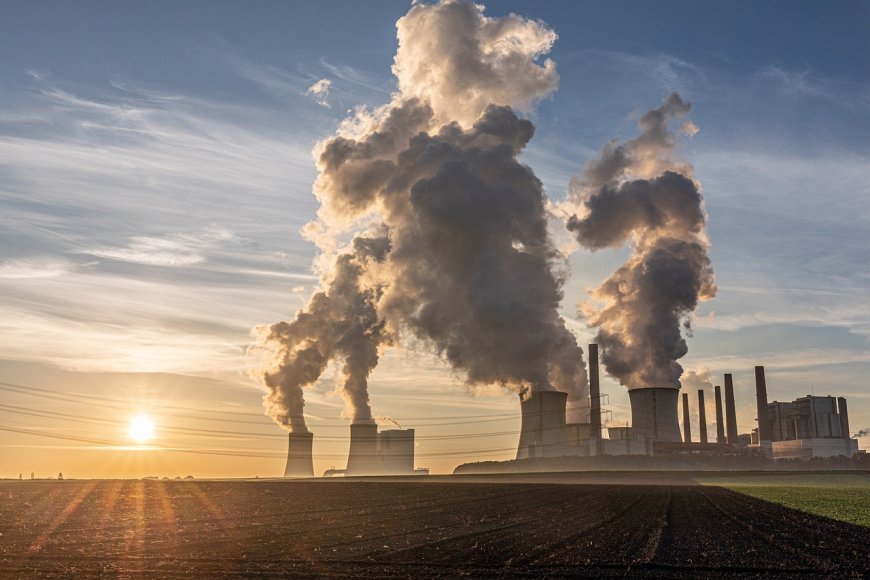Earth's temperature in July was the hottest on record
Global warming is occurring beyond the ability of experts to predict what will happen next.

JAKARTA -- Scientists in the United States report that the Earth just experienced its hottest temperature in July. These records extend a string of monthly highest temperatures that lasted for 15 consecutive months.
The recorded temperature was about 1.2C (2.1F) hotter than the average across the hemisphere. The record makes July the hottest month on record, the National Oceanic and Atmospheric Administration (Noaa) said Thursday (August 15, 2024). That is, the Earth's temperature over the past 15 months has beaten the previous monthly record.
“The record began in June 2023 and now surpasses the record set in 2015 and 2016,” said Karin Gleason, head of the monitoring section at Noaa's National Environmental Information Center, who added that last month's record was achieved with a small margin of “photo completion” during last July.
The hottest temperatures on record last month reached new highs in July in Europe and Africa. Meanwhile, North America experienced the second warmest temperatures in July. About one-fifth of the world's total land surface experienced a new temperature record in July, and only the most extreme regions of South America had colder than average monthly temperatures.
Across the ocean, which experienced a remarkable spike in heat levels over the past year, last month was the second warmest July on record, breaking records for 15 consecutive hot months.
Scorching heat is also occurring in most parts of the world, with heatwaves hitting regions such as Southern Europe and much of the United States in July. Last month, unusually, the daily average global temperature record was broken twice in two consecutive days.

Noaa's ranking differs slightly from that of the European Union's Earth observer service, Copernicus, which last week said that July was the second warmest month ever recorded, The Guardian writes.
On Thursday, Noaa said there was now a 77% chance that 2024 would be the warmest year ever recorded, beating the record set last year. The agency added that there is also a chance that two out of three La Niña climate events will occur from September onwards, a periodic natural change in conditions that often leads to cooler temperatures than the opposite, El Niño, which has contributed to recent highs.
“What is really surprising is how big the difference is between the temperatures in the last 13 months and the previous temperature record,” said Carlo Buontempo, director of the EU's Copernicus Climate Change Service after setting a daily temperature record on July 21. “We are now in uncharted territory and as the climate continues to warm, we will see new records broken in the coming months and years”
Beyond the predictions of experts
An essay by one of the leading climate scientists, published in the journal Nature this March, reveals a possibility that global warming is beyond the ability of experts to predict what will happen next.
“Temperature anomalies in 2023 appear suddenly, revealing an unprecedented knowledge gap, perhaps for the first time since about 40 years ago, when satellite data began to offer modelers a real-time and unparalleled view of the Earth's climate system,” writes Gavin Schmidt., a British scientist and director of NASA's Goddard Institute for Space Studies in New York.
If this anomaly is not stabilized by August, he said, then global warming has fundamentally changed the way the climate system works, much faster than scientists expected.
Many of the science and environmental communities read this sentence with trepidation. Is the spike in temperatures over the past 13 months, which exceeded experts' estimates on global warming, a sign of a systemic shift, or simply a temporary anomaly? If the world is warming faster than scientists predicted, and appears to be surging several years faster than predicted, does that mean more important measures of decades have been lost?
What happened this August didn't bother Schimdt much. He said the situation remains unclear, but the broader global warming trend is starting to move back in the forecast direction. “What I think now is we are not far from expectations. If we maintain this over the next few months then we can say what happens at the end of 2023 is more of an 'unclear' nature than systematic. But it's too early to cancel,” he said.
In an exclusive interview with the Guardian, Schmidt said the record was broken last year by a staggering margin. He predicted 2024 is also likely to be a new peak, though the trend may be getting closer to expectations.
Looking back at the most extreme hot temperatures in the months in the second half of 2023 and early in 2024, the previous record was broken many times by more than 0.2C. This is a huge anomaly. Because of this, he says scientists are still puzzled: “We don't have a quantitative explanation for even half of it. It was quite humbling.”
He added: “We should have had a better answer now. Climate modeling as a company is not meant to be super reactive. It is a slow and long process in which people around the world donate their time voluntarily. We have not taken concerted action on this question.”

This ignorance instead casts doubt on the science underlying global warming, which over 99.9% of climatologists agree is caused by the burning of gas, oil, coal, and forests by humans. Such events have created alarming new temperature records each year, as the Earth experienced last month with hot temperatures exceeding human temperature records for two consecutive days, and possibly exceeding the heat ever recorded in more than 120,000 years.
This is wreaking wider havoc around the world with intensifying wildfires, droughts, floods, loss of ice in the oceans, and other extreme weather manifestations.This worsening trend will continue until fossil fuels are stopped. “As climate change continues, temperatures get warmer every decade, the impact gets bigger and the consequences get bigger,” Schmidt said. “So in this case, we are already in uncharted territory with respect to climate and every decade we are taking more and more risks.” The El Ninõ that occurred recently added to the global heat pressure. The scientists also highlighted the impact of Tonga Tonga-Hunga Ha'apai volcano eruption in Tonga in January 2022, increased solar activity ahead of the estimated maximum temperature of the sun, and pollution controls that reduced the cooling of sulfur dioxide particles. But Schmidt said there was no sufficient cause to explain the temperature spike.
Schmidt hopes a clearer picture will emerge at a meeting of the American Geophysical Union in December, when many of the world's leading earth system scientists will gather in Washington DC.
One of the most alarming theories that has emerged is that the Earth is losing albedo, which is the ability of planets to reflect heat back into space. The prediction is mainly due to the reduced amount of white ice in Arctic, Antarctic, and mountain glaciers. Peter Cox, a professor at the University of Exeter, noted in X that this, “contributes greatly to the acceleration of global warming”.







